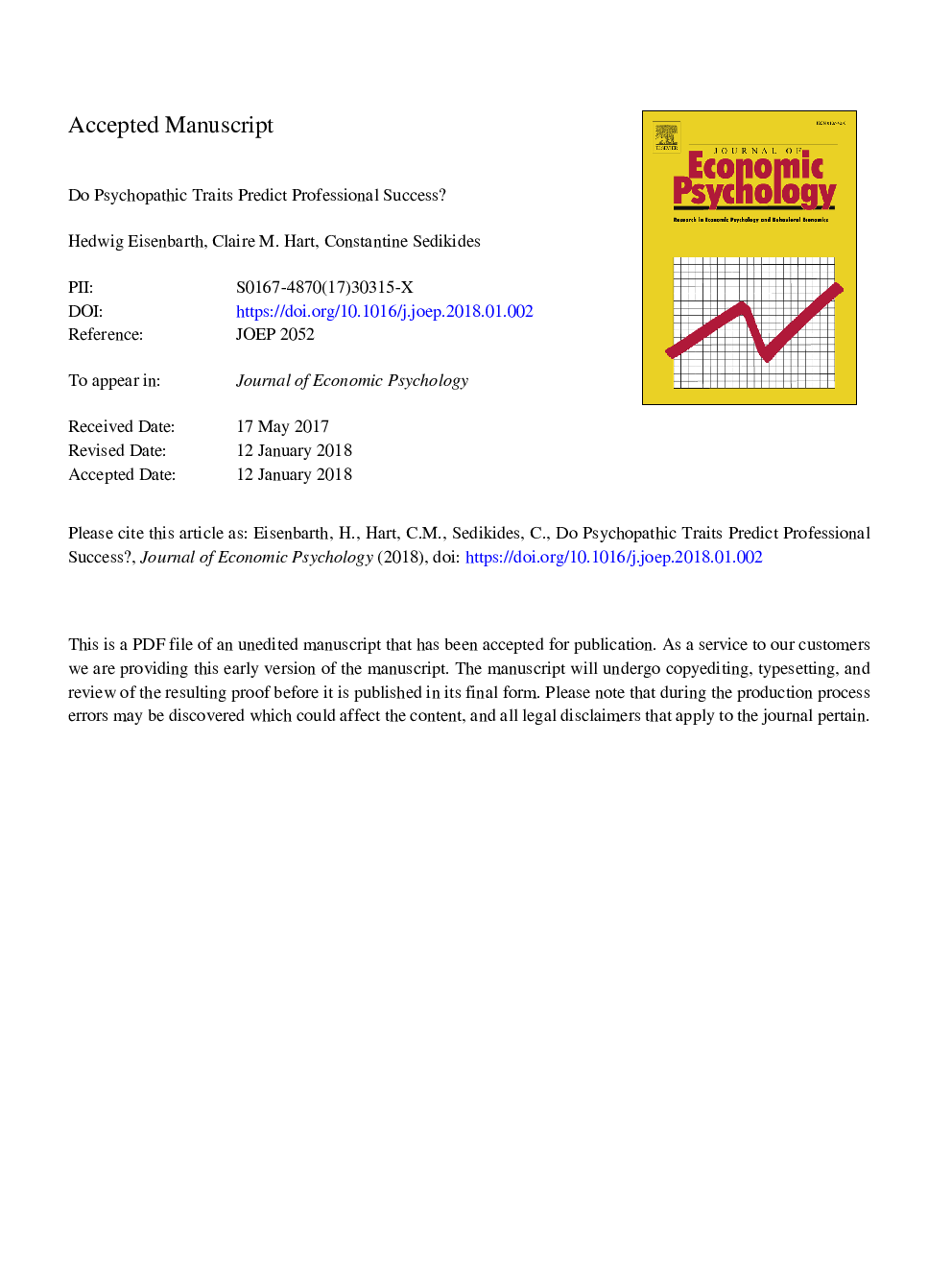| کد مقاله | کد نشریه | سال انتشار | مقاله انگلیسی | نسخه تمام متن |
|---|---|---|---|---|
| 7244112 | 1471702 | 2018 | 33 صفحه PDF | دانلود رایگان |
عنوان انگلیسی مقاله ISI
Do psychopathic traits predict professional success?
ترجمه فارسی عنوان
آیا صفات روانپزشکی موفقیت حرفه ای را پیش بینی می کنند؟
دانلود مقاله + سفارش ترجمه
دانلود مقاله ISI انگلیسی
رایگان برای ایرانیان
کلمات کلیدی
اختلالات فکری و روانی، حرفه ای، حرفه، تهاجمی خودمحور، سلطه بی تکلف،
موضوعات مرتبط
علوم انسانی و اجتماعی
مدیریت، کسب و کار و حسابداری
بازاریابی و مدیریت بازار
چکیده انگلیسی
Does psychopathy predict professional success? Psychopathy and professional success are multidimensional constructs, and thus certain elements of psychopathy may be related more strongly to certain elements of professional success. Also, psychopathic traits, comprising self-centered impulsivity, fearless dominance, and coldheartedness, may not predict professional success above and beyond the Big Five. We investigated whether self-centered impulsivity, fearless dominance, and coldheartedness predicted professional satisfaction (satisfaction with salary, with promotion, and with career) as well as material success (annual salary, number of promotions, and professional standing) in an occupational sample (Nâ¯=â¯439). Self-centered impulsivity was inversely related to professional satisfaction, whereas fearless dominance was positively related to professional satisfaction and material success. Coldheartedness was related to neither of them. Adding the Big Five, as well as participant gender and time in job, as predictors revealed that extraversion and self-centered impulsivity predicted professional satisfaction, whereas only extraversion predicted material success; fearless dominance was no longer a significant predictor of material success. Taken together, self-centered impulsivity was negatively linked, whereas fearless dominance was positively linked, to professional success. The findings highlight the differential contribution of impulsiveness- versus fearlessness-related elements of psychopathic traits to professional satisfaction.
ناشر
Database: Elsevier - ScienceDirect (ساینس دایرکت)
Journal: Journal of Economic Psychology - Volume 64, February 2018, Pages 130-139
Journal: Journal of Economic Psychology - Volume 64, February 2018, Pages 130-139
نویسندگان
Hedwig Eisenbarth, Claire M. Hart, Constantine Sedikides,
